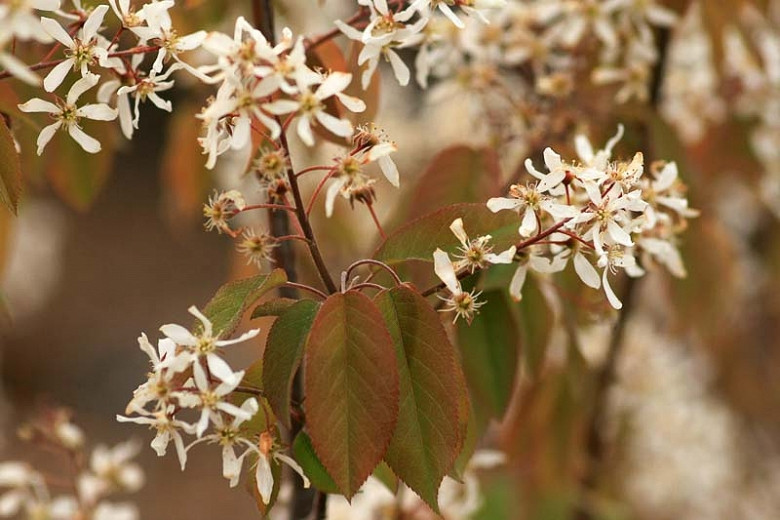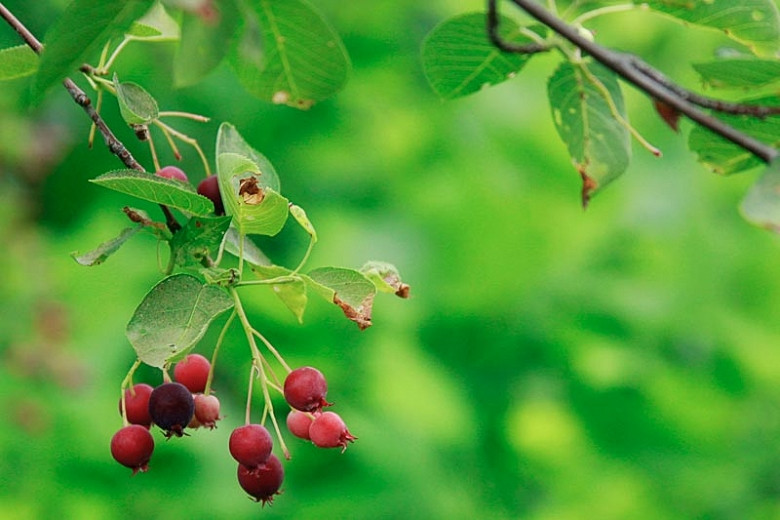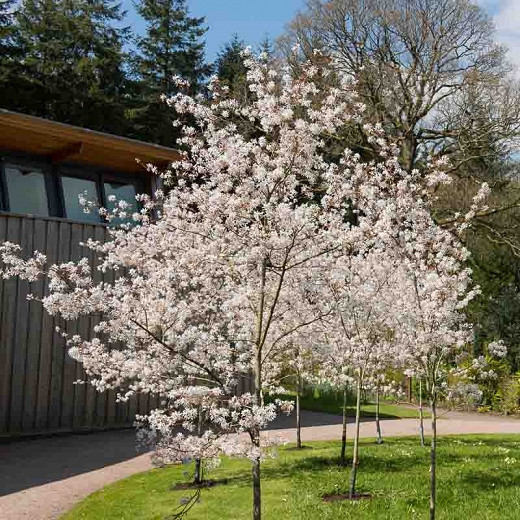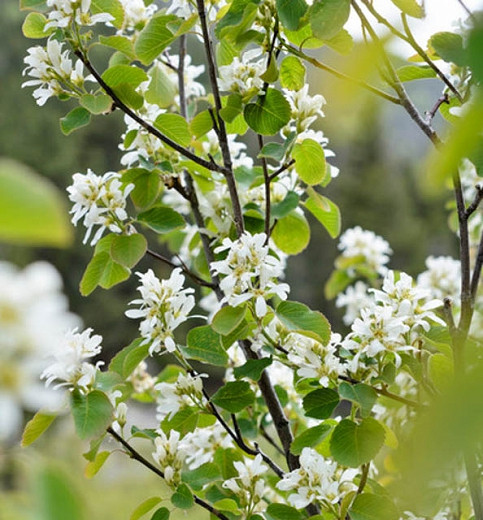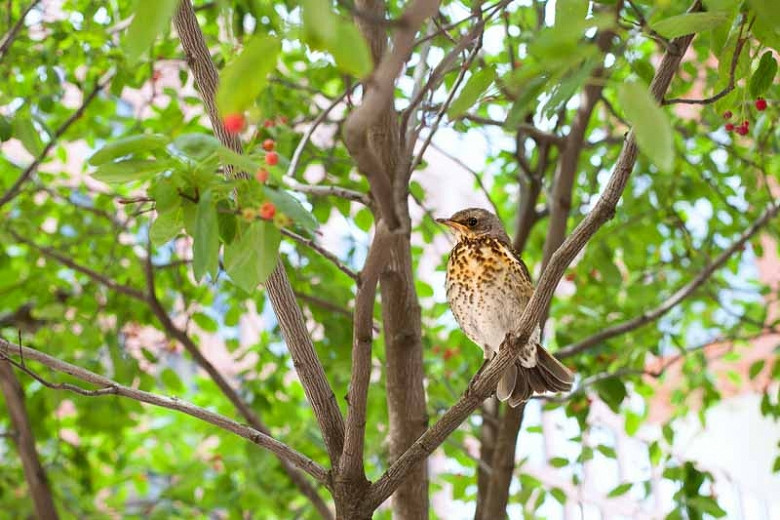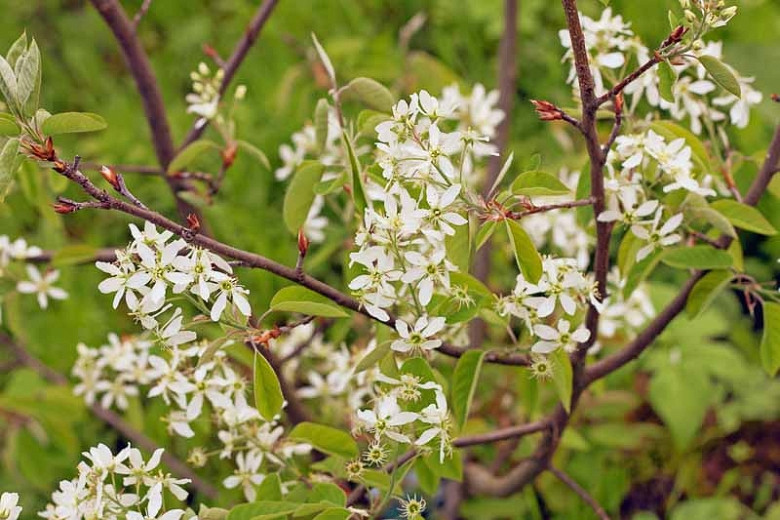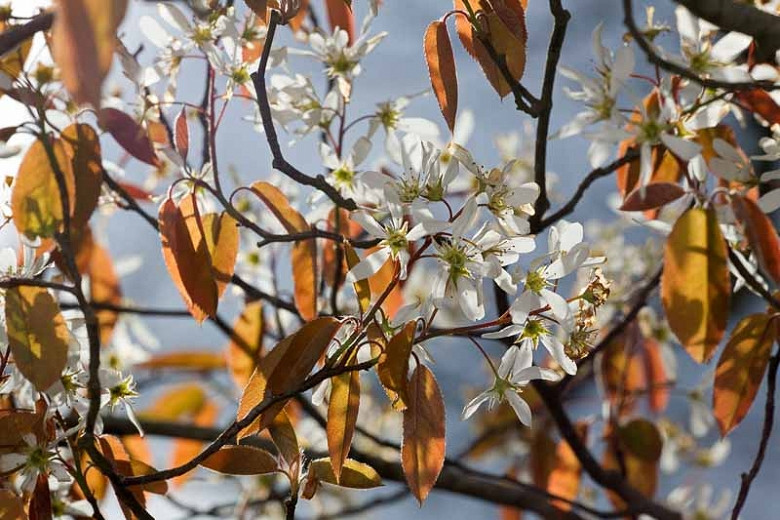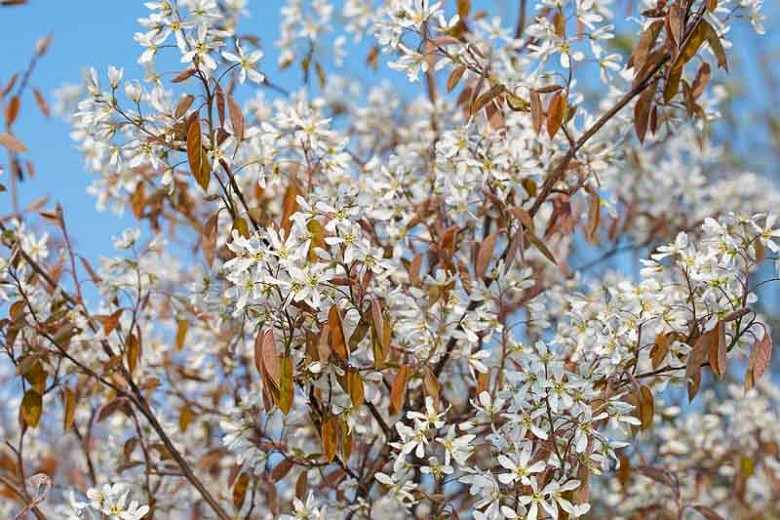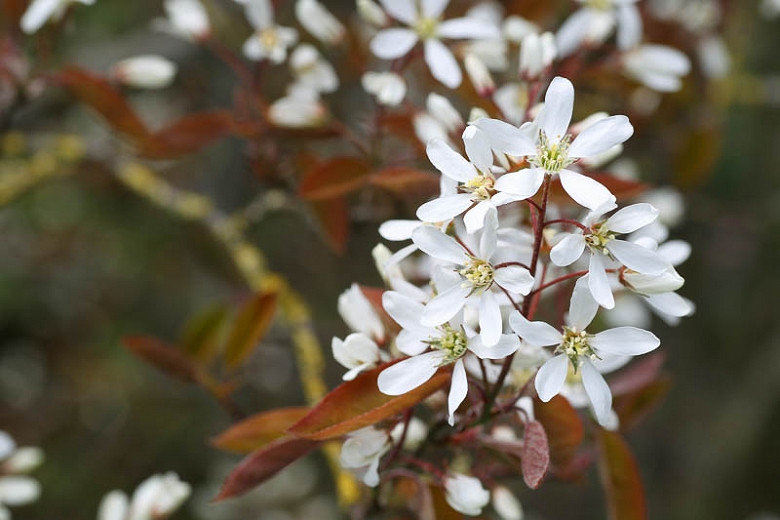Amelanchier arborea (Downy Serviceberry)
Early-flowering, Amelanchier arborea (Downy Serviceberry) is a large deciduous shrub or small tree of rounded habit boasting a profusion of 5-petaled, showy, slightly fragrant, white flowers in early to mid-spring. Borne in drooping clusters, they appear before the leaves emerge. Attractive to pollinators, they are followed by small, round, tasty, dark purplish-black berries in early summer. Resembling blueberries in size and color, they taste like those of highbush blueberry (Vaccinium corymbosum) and are often used in jams, jellies, and pies if not eaten by the birds. The foliage of finely-toothed, obovate leaves emerges covered with soft, woolly hairs that disappear as the leaves mature (hence the common name). Rich green in summer, the leaves, up to 4 in. long (10 cm), turn fiery shades of yellow, orange, apricot, or dusty red in the fall. The smooth, gray bark is streaked with longitudinal fissures and provides an excellent effect in winter. Native to eastern North America, Downy Serviceberry grows on a variety of sites from swampy lowlands to dry woods and sandy bluffs. It also grows on rocky ridges, forest edges, and open woodlands and fields. Very easy to grow, Downy Serviceberry provides year-round interest in the garden and is most effective in naturalistic plantings and along wood edges, ponds and streams.
- Grows up to 15-25 ft. tall and wide (4-8 m).
- A full sun to part shade lover, this plant is easily grown in moist to dry, well-drained, acidic soils. Best berry production and fall color occur in full sun. Tolerant of a somewhat wide range of soils, including those that are loamy, sandy, or rocky.
- Low maintenance, this plant is also generally pest and disease free but keep an eye out for fire blight.
- Perfect as a specimen plant or shrub borders. Great in naturalized or native plant gardens and along ponds and streams.
- Propagate by seed and semi-hardwood cuttings.
- Native to eastern North America.
Requirements
| Hardiness | 4 – 9 |
|---|---|
| Heat Zones | 4 – 9 |
| Plant Type | Shrubs, Trees |
| Plant Family | Amelanchier – Serviceberries |
| Exposure | Full Sun, Partial Sun |
| Season of Interest | Spring (Early,Mid,Late)Summer (Early,Mid,Late)FallWinter |
| Height | 15' – 25' (4.5m – 7.5m) |
| Spread | 15' – 25' (4.5m – 7.5m) |
| Spacing | 180″ – 300″ (450cm – 750cm) |
| Water Needs | Low, Average |
| Maintenance | Low |
| Soil Type | Clay, Loam, Sand |
| Soil pH | Acid, Neutral |
| Soil Drainage | Moist but Well-Drained, Well-Drained |
| Characteristics | Fragrant, Showy, Fruit & Berries |
| Native Plants | United States, Midwest, Illinois, Indiana, Iowa, Kansas, Michigan, Minnesota, Missouri, Nebraska, Ohio, Wisconsin, Northeast, Connecticut, Delaware, Maine, Massachusetts, Maryland, New Hampshire, New Jersey, New York, Pennsylvania, Rhode Island, Vermont, Southeast, Alabama, Arkansas, Florida, Georgia, Kentucky, Louisiana, Mississippi, North Carolina, South Carolina, Tennessee, Virginia, West Virginia, Southwest, Oklahoma, Texas |
| Tolerance | Clay Soil, Dry Soil |
| Attracts | Birds |
| Garden Uses | Beds and Borders, Ponds and Streams |
| Garden Styles | City and Courtyard, Informal and Cottage, Prairie and Meadow |
